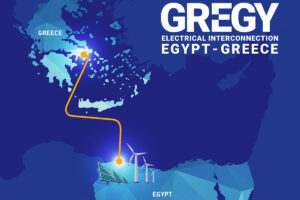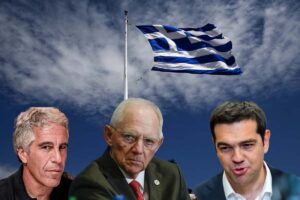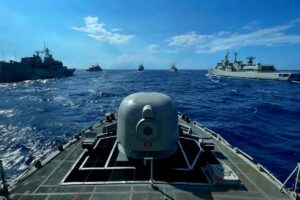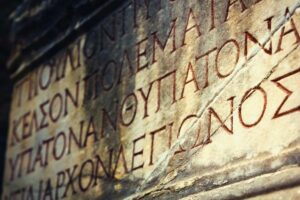Turkey’s contingency war plans against Greece, particularly targeting Western Thrace and the Aegean islands, have suffered a serious setback due to the expanded military presence of the United States and France in support of Greek defence. These were Turkey’s invasion plans for Greece blocked by US, France, sparking Erdogan’s fury.
This prompted sharp criticism from Turkey’s increasingly frustrated leadership, including President Recep Tayyip Erdogan, in recent years.
Turkey’s military strategy for a potential incursion into Greek territory, especially Western Thrace, was designed to exploit a narrow window of opportunity, which Turkish generals anticipated would close quickly following swift US and European intervention after any Turkish offensive.
These secret plans first emerged during the 2010 “Sledgehammer” (Balyoz) trial in Istanbul, which exposed the mindset of hardline Turkish generals contemplating such contingencies. At the time, the revelations drew little attention, likely because they were buried within the annexes of an extensive case file focused primarily on a domestic power struggle between the military and the civilian government.
However, overwhelming evidence in the case file — including authenticated documents, voice recordings, and General Staff reports — confirmed that detailed war plans were indeed discussed during a military seminar held from 5–7 March 2003, under the leadership of General Çetin Doğan, then-commander of the 1st Army Corps. Around 30 senior officers participated.
According to a PowerPoint presentation obtained by Nordic Monitor, the seminar’s central focus was a military operation in the Aegean, supported by supplementary actions in Greek Thrace. The planners emphasised that any military action in Thrace should prioritise inflicting maximum damage on enemy forces rather than territorial conquest.
“The measures to be taken in Thrace must support the operation in the Aegean,” the final report stated. “The objective should be less about territorial gains and more focused on destroying as many enemy forces as possible.”
The 1st Army Corps, headquartered in Istanbul, is tasked with defending Turkey’s Thrace region, as well as securing the Bosporus Straits and Istanbul. Representatives from the Turkish General Staff and other military units also attended the seminar.
The seminar revealed a prevailing mindset among Turkish military planners at the time, particularly those with strong anti-American and anti-NATO views. Although Erdogan initially clashed with these officers, he later formed a decade-long political alliance with them and their civilian supporters, the so-called Ulusalcılar (neo-nationalists), from 2014.
According to the seminar report, Turkish strategists anticipated that NATO and the EU would intervene rapidly if Turkey launched a military offensive against Greece. They concluded that Turkey would have only three to four days to achieve its aims — enough time to inflict serious damage on Greek forces but insufficient for a prolonged occupation. The ultimate goal was to seize control of key Aegean islands.
In April 2025, Turkey’s standalone military forces, including the Aegean Army Command, Amphibious Task Group Command, and Amphibious Corps Command, conducted major joint exercises in the western province of Izmir, featuring both offshore and onshore operations.
While Turkey’s plans may have evolved over time, their core objectives are believed to have remained largely intact. However, the strategic environment has shifted dramatically, making a military offensive against Greece far more difficult — much to the dismay of Turkey’s war planners.
Greece’s recent defence cooperation agreements with the US and France — particularly those granting expanded US access to Greek military and naval bases — have severely undermined Turkey’s invasion prospects. The presence of US troops at key facilities significantly increases the risk for Turkey, as targeting Greek assets could provoke a direct confrontation with the United States, something Ankara is keen to avoid.
This reality is a major driver behind Ankara’s increasingly hostile rhetoric towards Washington’s growing military engagement with Greece and Athens’ strengthening ties with both the US and France.
Read more on Tanea.com.au
During a joint press conference with Hungarian Prime Minister Viktor Orbán in Ankara on 11 November 2021, President Erdogan publicly expressed his frustration:
“Greece itself has now become a base for the United States. I couldn’t even count the number of US bases inside Greece; there are just that many. When you look at the map, Greece itself resembles an American military base. That’s the reality. Why are all these bases being established, and for what purpose? We’ve asked — my defence minister, my foreign minister, and I have asked President Biden and others — and we keep getting evasive answers. They’re not being honest. The neighbour they’ve chosen is the wrong one, and using Greece as a base in the Aegean is the wrong approach.”
Erdogan has repeated similar criticisms at public rallies, while senior Turkish government and military leaders have echoed the same narrative.
US officials have rejected these accusations, insisting that the American military presence in Greece is intended to strengthen NATO’s eastern flank, not to threaten Turkey. On 18 October 2022, US Ambassador to Turkey Jeff Flake tweeted:
“Our defence cooperation with Greece strengthens NATO’s eastern flank in support of Ukraine and our NATO allies in Central and Eastern Europe. Our shared objective with Türkiye and Greece is peace, security, and stability throughout the region.”
US-Greece defence collaboration has intensified in recent years, marked by expanded joint military exercises, modernised agreements, and increased American military assistance, significantly enhancing Greece’s role in regional and transatlantic security.
In 2019 and 2021, Greece and the US updated the 1990 Mutual Defence Cooperation Agreement (MDCA), granting American forces broader access to Greek bases, including Alexandroupolis near the Turkish border and the critical Souda Bay base in Crete.
The US has also sold Greece billions of dollars’ worth of advanced defence systems, helped modernise its F-16 fighter jets, and is considering the sale of fifth-generation fighter aircraft to the Hellenic Air Force. US and Greek forces now participate in over 15 major joint exercises annually.
The expanded US presence at Alexandroupolis, just 40 kilometres from the Turkish border, has especially alarmed Ankara. The port is now a vital transit hub for US and NATO forces moving equipment to Eastern Europe, bypassing the Turkish-controlled Bosporus Strait. Additionally, the prospect of US forces stationed on the Aegean islands is another major concern for Turkish leaders.
France, too, has enhanced Greece’s defence capabilities. In September 2021, Athens and Paris signed a landmark defence agreement committing mutual military support in the event of an armed attack, paving the way for Greece to procure Rafale fighter jets, frigates, missiles, and helicopters from France.
These developments have significantly restricted Turkey’s military options, weakening its contingency plans for Greece. As a result, Turkish civilian and military leaders have intensified their attacks on the growing Greece-US-France defence alliance, which they see as a major obstacle to Turkey’s regional ambitions.
The secret seminar report suggests that Turkey’s aggressive rhetoric towards Greece is not simply for domestic political gain, such as distracting from financial difficulties, unemployment, or inflation, or for electoral purposes, as some pundits claim.
Rather, there is a real strategic calculation behind Ankara’s warlike posture — one that cannot be dismissed as mere domestic grandstanding or explained away by Turkish diplomats and apologists.












